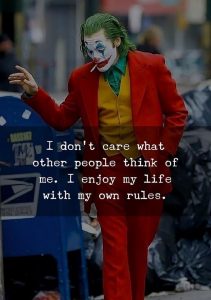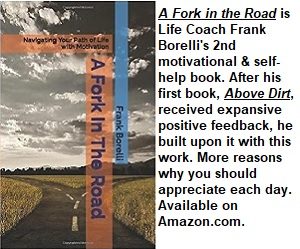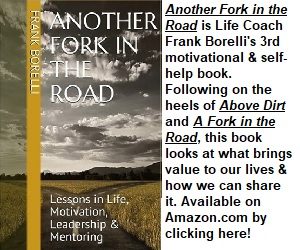Somehow, somewhere along the way, we as a society seem to have come to the belief that every person perceives every experience in the same way. The fact of individual experience, individual knowledge, individual background, individual resilience… these things all seem to be dismissed in favor of the belief that if X happens to little Johnny and it’s hurtful to him, then if X happens to little Mark it must also be hurtful to him. As adults we see people assuming that if X happens to someone and causes them stress, then it must cause stress to everyone who experiences it.
Folks, this just ain’t so and we have to get away from treating it as if it is. What we’ve got going on is that people assume it has to be so and when they see one person challenged by an experience or event then, all of a sudden, a whole bunch of people who may never have been impacted by that same experience or event are suddenly believing there has to be something wrong with themselves somehow. Let me share a few examples and maybe what I mean will be a little clearer.
 I am blessed to know several men and women who are military veterans. They range in age from the late-20s to late-60s and I consider all of them good, decent, hard-working, honest people. They served in various branches of the armed forces. Some saw combat up close and personal; some from a distance; some not at all. Many people assume that every combat veteran has to have Post Traumatic Stress Disorder (PTSD). Yet among those warriors I know, some suffer mild effects of PTSD; some are challenged with more serious effects; some experience no sign or symptom of PTSD at all. Some of those warriors who experienced combat in that up close and personal (ugliest) fashion are among those who suffer no challenges at all from PTSD. They show no symptom of having it. How can that be, right?
I am blessed to know several men and women who are military veterans. They range in age from the late-20s to late-60s and I consider all of them good, decent, hard-working, honest people. They served in various branches of the armed forces. Some saw combat up close and personal; some from a distance; some not at all. Many people assume that every combat veteran has to have Post Traumatic Stress Disorder (PTSD). Yet among those warriors I know, some suffer mild effects of PTSD; some are challenged with more serious effects; some experience no sign or symptom of PTSD at all. Some of those warriors who experienced combat in that up close and personal (ugliest) fashion are among those who suffer no challenges at all from PTSD. They show no symptom of having it. How can that be, right?
 I know two men, both of whom have served in the fire service. One primarily served in the Emergency Medical Services (EMS) section and the other is predominantly a firefighter. Both have seen their share of bodily harm and mayhem victims experienced in traffic accidents, criminal assaults, fires, etc. Both have been diagnosed with PTSD. One accepted it as part of who he is and moved on. His diagnosis moved him to retire from EMS service but he has now, years later, returned to that service with a greater awareness of how it will potentially affect him and armed with better skills to manage the stressors of the job. The other man struggles just to maintain his equilibrium on a daily basis and his PTSD has become the main focus of his life. His new reality is that he will fight the symptomological impact of PTSD on his behavior every moment of every day and if he somehow isn’t experiencing any symptoms, then it’s because he’s not paying close enough attention.
I know two men, both of whom have served in the fire service. One primarily served in the Emergency Medical Services (EMS) section and the other is predominantly a firefighter. Both have seen their share of bodily harm and mayhem victims experienced in traffic accidents, criminal assaults, fires, etc. Both have been diagnosed with PTSD. One accepted it as part of who he is and moved on. His diagnosis moved him to retire from EMS service but he has now, years later, returned to that service with a greater awareness of how it will potentially affect him and armed with better skills to manage the stressors of the job. The other man struggles just to maintain his equilibrium on a daily basis and his PTSD has become the main focus of his life. His new reality is that he will fight the symptomological impact of PTSD on his behavior every moment of every day and if he somehow isn’t experiencing any symptoms, then it’s because he’s not paying close enough attention.
 As a life-long veteran of law enforcement, I obviously know a lot of police officers, deputy sheriffs, etc. As law enforcement professionals, we tend to incorporate a heightened level of awareness into our day to day life. It almost becomes a running joke: we always sit with our back to a wall; we can see the exit and all who are coming or going; we visually inspect people, looking for bulges or other signs of weapons. We are vigilant. I recently had a conversation with a man – a military veteran – who was convinced that this heightened level of vigilance has to be causing me some type of stress. My outlook is a bit different because, to my way of thinking, if I fail to exercise that level of vigilance, it will cause me a heightened level of stress because of the perception of potential threat that I’d be completely unaware of. My perception is that I experience an increase in stress if I’m forced to be in situations where I can’t exercise that heightened level of vigilance. What helps me keep my stress levels down is exercising that awareness and not having any threats come into my area of operations.
As a life-long veteran of law enforcement, I obviously know a lot of police officers, deputy sheriffs, etc. As law enforcement professionals, we tend to incorporate a heightened level of awareness into our day to day life. It almost becomes a running joke: we always sit with our back to a wall; we can see the exit and all who are coming or going; we visually inspect people, looking for bulges or other signs of weapons. We are vigilant. I recently had a conversation with a man – a military veteran – who was convinced that this heightened level of vigilance has to be causing me some type of stress. My outlook is a bit different because, to my way of thinking, if I fail to exercise that level of vigilance, it will cause me a heightened level of stress because of the perception of potential threat that I’d be completely unaware of. My perception is that I experience an increase in stress if I’m forced to be in situations where I can’t exercise that heightened level of vigilance. What helps me keep my stress levels down is exercising that awareness and not having any threats come into my area of operations.
 My point is that we all perceive events and circumstances in our lives differently because we are all different people. We have different backgrounds. We were raised in different homes / families. We were raised in different regions and each region has its own culture. We were raised with different educations, in different settings and with different expectations. We have different young adult experience and varying levels of knowledge about a wide variety of topics. All of that makes each of us so unique as to make it utterly ridiculous to assume that the same thing affects each of us the same way. The very fact of all our differences makes that impossible to be so!
My point is that we all perceive events and circumstances in our lives differently because we are all different people. We have different backgrounds. We were raised in different homes / families. We were raised in different regions and each region has its own culture. We were raised with different educations, in different settings and with different expectations. We have different young adult experience and varying levels of knowledge about a wide variety of topics. All of that makes each of us so unique as to make it utterly ridiculous to assume that the same thing affects each of us the same way. The very fact of all our differences makes that impossible to be so!
 Therefore, what’s important is that YOU know what stresses you and what doesn’t. For the items in your life that do cause you stress, know them, recognize when they impact you, and know how to mitigate them or manage them to the best of your ability. Know the things you can do that don’t stress you – even if those things stress others. Part of our human duty is to handle and manage the activities and realities that stress others but don’t stress us. When you think about it, doing so is a contribution to humanity and adds to our karma balance.
Therefore, what’s important is that YOU know what stresses you and what doesn’t. For the items in your life that do cause you stress, know them, recognize when they impact you, and know how to mitigate them or manage them to the best of your ability. Know the things you can do that don’t stress you – even if those things stress others. Part of our human duty is to handle and manage the activities and realities that stress others but don’t stress us. When you think about it, doing so is a contribution to humanity and adds to our karma balance.
